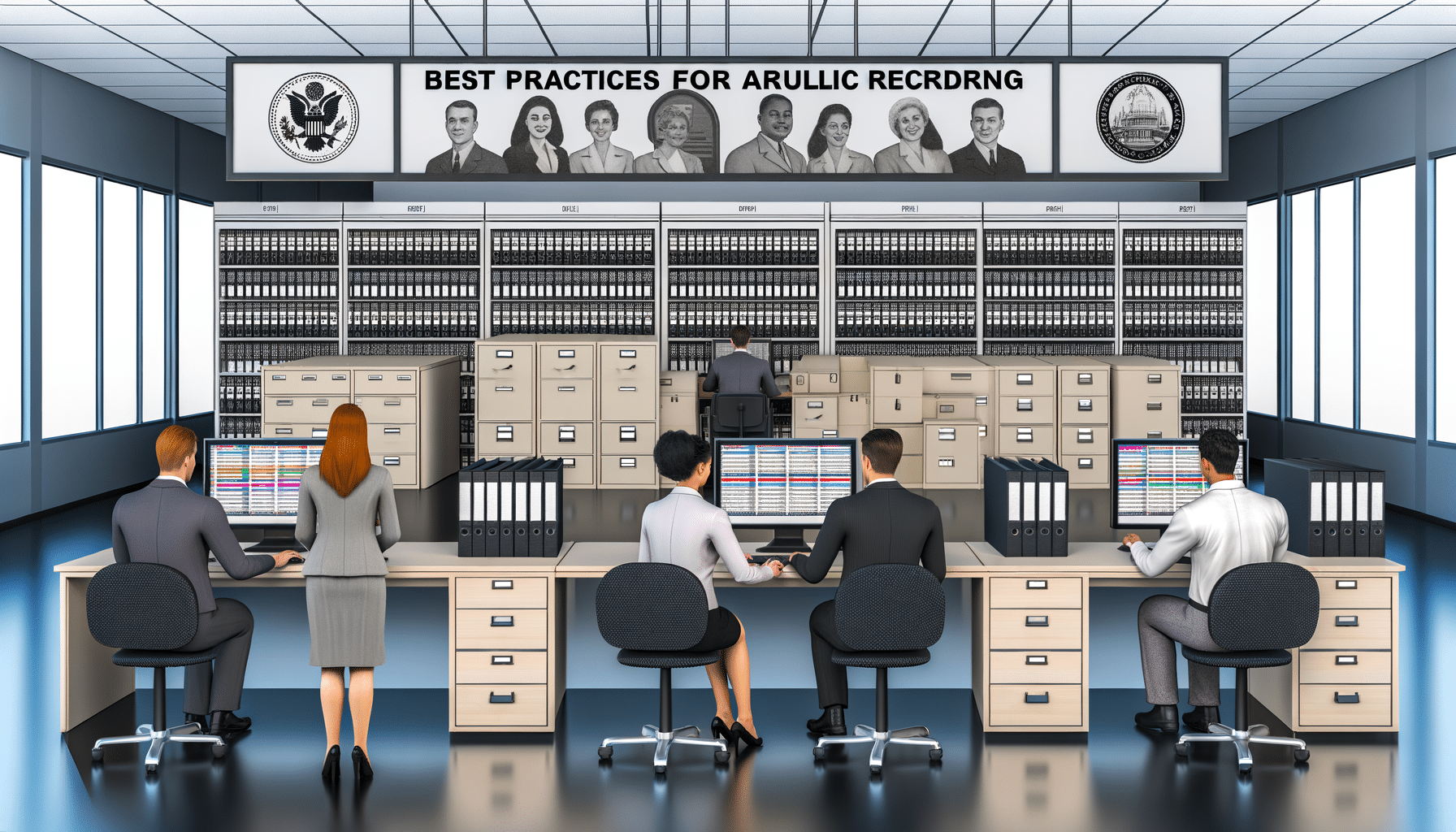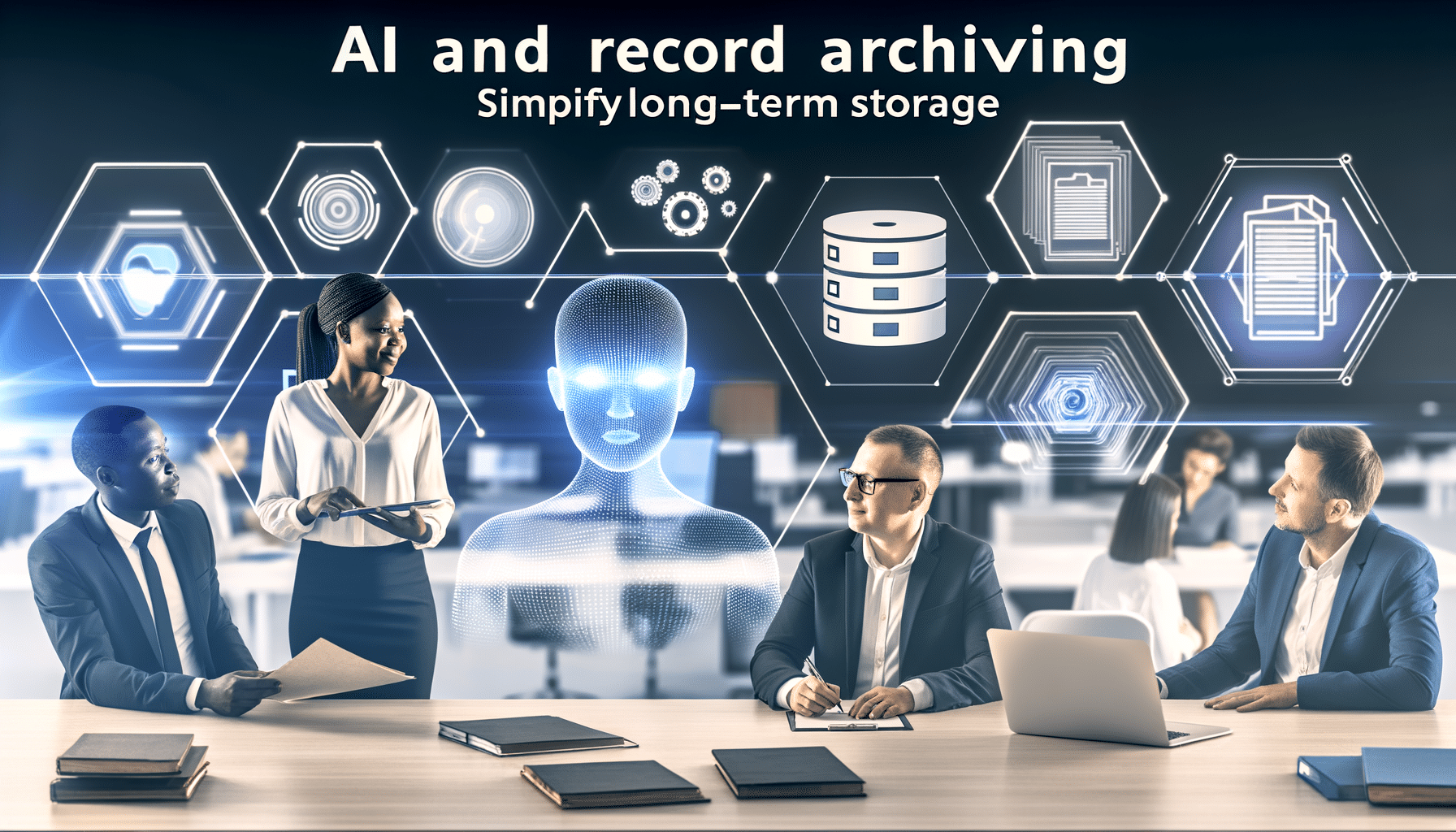- Archiving
- April 29, 2024
Best Practices for Archiving Public Records in Government Departments

Transforming Public Records Archiving in Government: A Best Practices Guide
When it comes to archiving public records, government departments face challenges that demand precision, security, and compliance. As someone who has tackled these issues firsthand with RecordsKeeper.AI, I understand the critical nature of effectively managing public records. Let’s delve into some of the best practices that can help streamline this essential task.
Understanding the Importance of Archiving Public Records
Public records aren’t merely documents; they are pivotal elements of a government’s transparency and accountability. Effective archiving ensures that critical information is preserved, easily retrievable, and secure from unauthorized access. This involves strategic planning and the implementation of advanced technologies tailored to meet stringent regulatory requirements.
1. Adopt a Comprehensive Archiving Strategy
Embarking on a comprehensive archiving strategy is paramount. Begin with an assessment of your current records inventory. Identify what needs to be preserved, for how long, and in what format. A robust strategy typically includes:
2. Leverage AI for Automated Categorization
Harnessing AI for automated categorization and retrieval can revolutionize how you manage public records. By using AI, government departments can seamlessly classify documents, ensuring they’re easy to locate with simple language queries. Such automation reduces manual labour, errors, and speeds up the archiving process.
3. Secure Data Rooms for Confidentiality
Using secure data rooms is vital for sharing sensitive records. This feature allows departments to control access, monitor who views the records, and keep an audit trail to ensure that all activities are logged. Transparency and traceability in public records management can greatly enhance confidence and accountability in government operations.
4. Implement Stringent Compliance Management
Compliance is non-negotiable for public record archiving. Policies like GDPR and HIPAA dictate how records should be handled. Automating compliance management can streamline workflows, ensuring adherence to these standards. It’s crucial to stay updated with any legislation changes to avoid potential compliance breaches.
5. Ensure Robust Backup and Recovery Systems
The loss of public records can be catastrophic. Regular automated backups with reliable recovery options are non-negotiable elements of public record management. By scheduling frequent backups, government agencies can safeguard vital information against loss due to unforeseen incidents like server crashes or natural disasters.
6. Utilize Blockchain for Record Integrity
Blockchain technology provides an immutable, tamper-proof way to preserve data integrity. By integrating blockchain into your archiving process, you ensure that once records are archived, they cannot be altered without detection. This guarantees the authenticity and reliability of public records over time.
7. Regularly Update Policy Management
Lastly, policy management must be dynamic. Government regulations evolve, and so should your archiving policies. Enforce data retention and disposal protocols automatically to stay compliant with the latest legal standards. Periodic policy reviews help in adapting to any legislative shifts rapidly and efficiently.
Conclusion: Embrace Innovation for Efficient Public Records Archiving
In conclusion, the archiving of public records is a vital practice for government departments, demanding innovation and adherence to best practices. RecordsKeeper.AI offers sophisticated solutions for these challenges, transforming record management into a strategic advantage rather than a burden. By embracing automation, compliance, security, and cutting-edge technology, public records management becomes not only more efficient but a pillar of trust and transparency.
As the founder of RecordsKeeper.AI, I invite you to explore how our solutions can empower your department. Let’s transform the way we archive public records and together, ensure an era of transparency and security. For more insights, stay connected and discover how you can leverage technology for efficient record management.
Toshendra Sharma is the visionary founder and CEO of RecordsKeeper.AI, spearheading the fusion of AI and blockchain to redefine enterprise record management. With a groundbreaking approach to solving complex business challenges, Toshendra combines deep expertise in blockchain and artificial intelligence with an acute understanding of enterprise compliance and security needs.
Related Posts

AI and Record Archiving: Simplifying Long-Term Storage
Understand how AI streamlines the archiving of records for long-term storage and easy retrieval.
- May 18, 2023

Smart Record Archiving: The Future of Document Management
The future of document management with smart archiving technologies.
- November 2, 2022
Archives
- December 2024
- November 2024
- October 2024
- September 2024
- August 2024
- July 2024
- June 2024
- May 2024
- April 2024
- March 2024
- February 2024
- January 2024
- December 2023
- November 2023
- October 2023
- September 2023
- August 2023
- July 2023
- June 2023
- May 2023
- April 2023
- March 2023
- February 2023
- January 2023
- December 2022
- November 2022
- October 2022
- September 2022
- March 2019
Want to get more content like this?
Signup to directly get this type of content to your inbox!!
Latest Post
Record Organization for Sales Teams
- December 26, 2024
Handling Duplicate Client Records
- December 25, 2024
Quick Reference Systems for Support Staff
- December 24, 2024
Managing Intern Document Handling
- December 23, 2024





